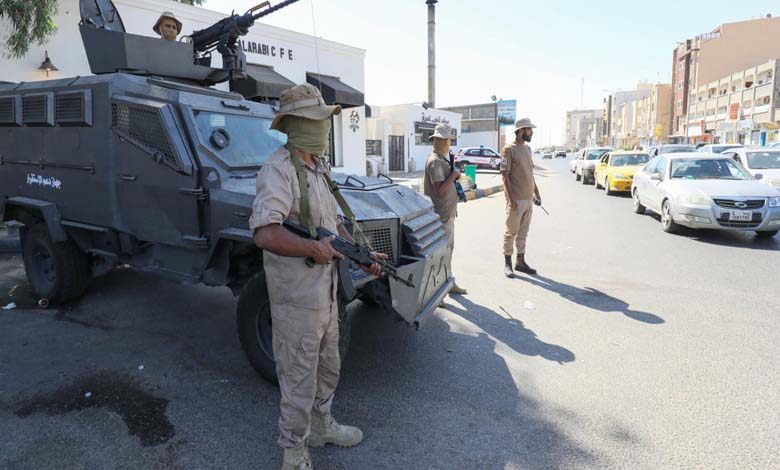Less than half… Attacks deprive the majority of Libyan towns of voting

Several Libyan towns witnessed, on Saturday, the launch of the second round of municipal elections, out of 63 initially scheduled.
However, attacks targeting the offices of the High National Election Commission, carried out last Friday and the week before in Zawiya, Al-Sahel, and Zliten, prevented the process from being fully completed.
-
Renewed Military Buildup in Tripoli Raises Fears of New Clashes
-
Violence erupts in Tripoli after protesters opposing Dbeibeh are dispersed
Elections were originally planned in 63 municipalities nationwide: 41 in the west, 13 in the east, and 9 in the south. Yet, the High National Election Commission announced the cancellation of voting in 11 municipalities due to earlier violations.
In a statement on Saturday, the Commission explained that voting had taken place in only 26 municipal councils after all required preparations were completed, while elections in other municipalities were postponed to August 23, 2025, due to attacks or decisions by local authorities. As a result, voting did not occur in more than half of the targeted municipalities.
-
UN and Regional Efforts to Contain Tensions in Tripoli
-
The Smoke of Tripoli Clashes Still Rises: Political Economic and Security Repercussions
The Commission stressed that the assaults on the electoral process in Zliten, Zawiya, and Ajilat were not mere expressions of local grievances but reflected “an agenda driven by forces of darkness and instability” seeking to exclude citizens from political participation.
Despite these incidents, the Commission highlighted that participation rates in both this round and the previous one were encouraging, reflecting the growing awareness among citizens of the importance of peaceful engagement, similar to other nations that rely on elections as the foundation of democratic power transfer.
-
Gheniwa’s Blood Strangles Dbeibah… Tripoli’s Nero Burns in His Own Fire
-
Protests in Tripoli Call for Dbeibah and His Government to Step Down
It acknowledged that the environment in which these elections were being held was “far from ideal,” marked by risks, challenges, and disinformation campaigns, yet considered the progress achieved so far as a significant success. It reiterated the need to further consolidate a culture of peaceful alternation of power and to restrict political conflict to the ballot box.
The United Nations Support Mission in Libya strongly condemned the attacks on two Commission offices in Zawiya and the western coast, describing them as serious acts aimed at undermining the electoral process and depriving citizens of their rights. The Mission reaffirmed its unwavering support for the Commission and urged security authorities to provide full protection for electoral premises and staff, while calling for a thorough investigation to hold those responsible accountable.
-
Militia Arms Chaos Reignites Violence Spiral in Tripoli
-
Heavy Clashes in Tripoli After the Killing of a Militia Leader Affiliated with the Presidential Council
The Mission further emphasized that the Libyan people have repeatedly expressed their aspiration to choose their leaders through a reliable and peaceful democratic process, urging the international community to assist Libya in safeguarding this right.
The United Kingdom also voiced strong support for the elections across Libya, stating, through a message from its embassy in Tripoli posted on X, that attempts to obstruct democracy through violence were “extremely concerning” and endangered the Libyans’ ability to elect their local leadership. Similar positions were expressed by several embassies in a joint declaration in support of the electoral process.
-
Armed Clashes in Tripoli Reveal Fragility of Security Situation
-
Washington Denies Training Armed Groups in Tripoli under Agreement with Dbeibeh
The first phase of municipal elections had taken place on November 16, 2024, in 58 towns, marking the first such experience in nearly a decade. It recorded a 74% voter turnout without significant security incidents.
The current elections are the largest in nearly fifteen years, covering 62 municipal councils in major cities such as Tripoli, Benghazi, and Sebha. In the same context, the Commission announced on Friday the suspension of elections in the Sayyad al-Hashan district, located 17 kilometers west of the capital Tripoli.












